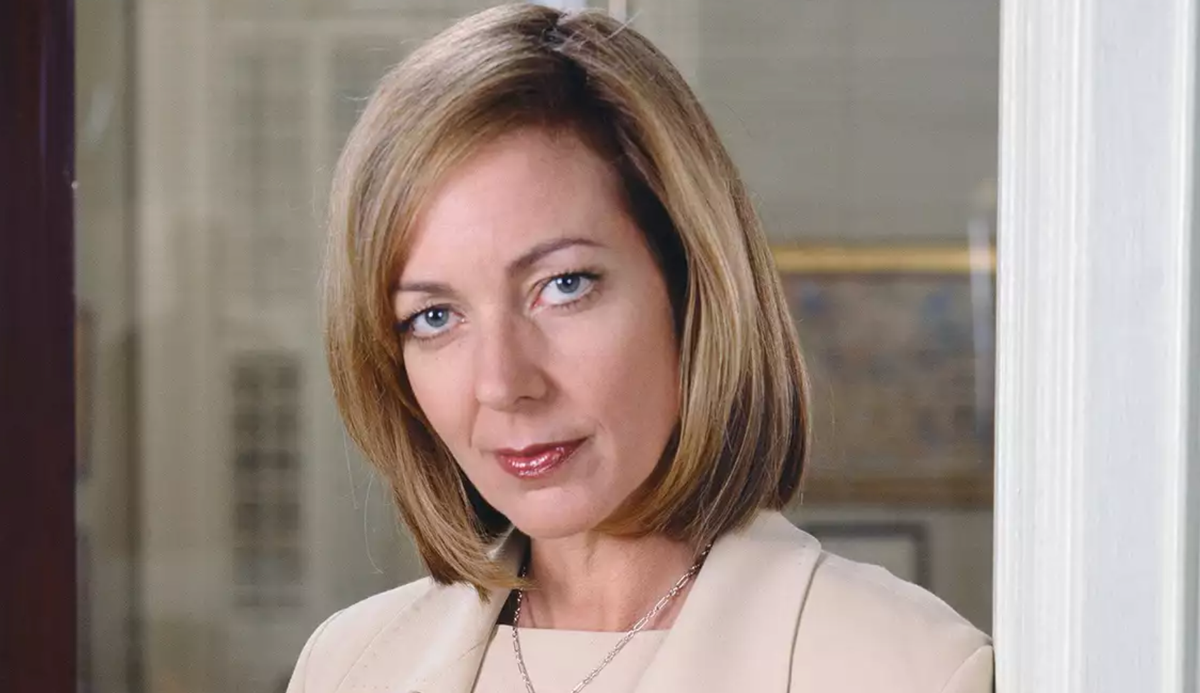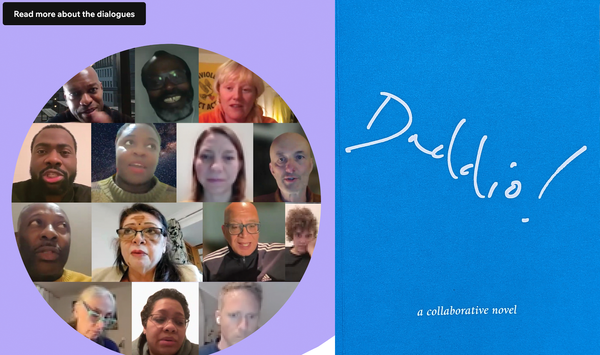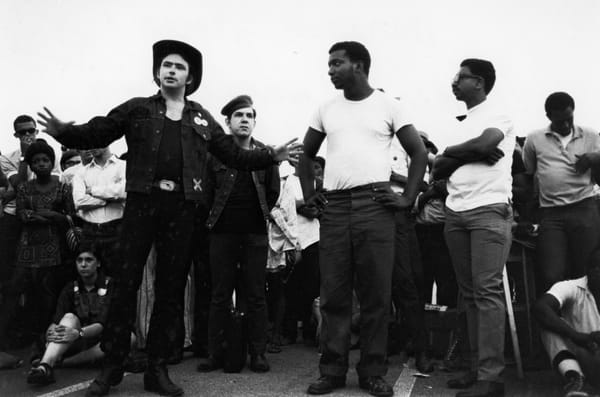What qualities should the next Archbishop of Canterbury have?
This is Absurd Intelligence’s inaugural guest post: by Liz Slade, the first woman leading the Unitarian General Assembly in its 96 year history

Back in 2011, long before I was working in the church world, my boss in the medical tech company I was working at encouraged me to consider which leaders I admired, and what qualities they have. It was to help me find out what kind of a leader I was, or could be.
The two people who came to mind were CJ Cregg from The West Wing, and Rowan Williams, the then Archbishop of Canterbury. I still have the notes in my phone. I admired CJ being “effective, keeps her eye on what’s right, doesn’t make her work about herself, calm exterior, no dramatics, stays true to herself but is pragmatic for the greater good”.
My notes on Rowan Williams read “quiet strength, moral but rational, pragmatic, goes against the flow, doesn’t make his work about himself, intellectual but not egotistical, looks for similarities and shared ground, not divisive”.
(I wonder what it says about the egos I encountered in my work back then that I was so adamant that leaders shouldn’t make their work about themself.)
These old notes buried in my phone came to mind as I wondered about the consultation the Church of England is currently carrying out as it searches for its new Archbishop of Canterbury. This follows Justin Welby’s resignation towards the end of last year as a result of systemic lapses in safeguarding.
Will the CoE Appoint a Woman?
This will be the 106th Archbishop of Canterbury, a line of men stretching back to St Augustine in 597 AD. I believe this is the first time that the general public has been invited to contribute to identifying the “gifts, qualities, skills and experience” that should be sought in the next Archbishop, and are even invited to nominate individuals.
The character of CJ in the West Wing was based on the real life first female press Secretary in the White House, Dee Dee Myers. Despite Myers’ book Why Women Should Rule the World being nearly 20 years old, it feels unlikely that the Anglican Church is ready for a female Archbishop. I would love to be wrong on that, but also wary of the ‘glass cliff’ effect where women are permitted into positions of leadership in a time of crisis when the risk of failure is highest.
The reason I found myself moving from healthcare to church leadership was in following the threads that showed me that as humans, we can’t be healthy without community, and without power and agency in how our community works. Churches – at their best – can be places where we contribute creatively, make decisions together, create a pocket of a better world, take care of each other, and live the stories that mean the most to us.
Spending my early adulthood with friends but no community, unquestioningly secular, diligently following the idea that buying nice things could lead to happiness, I was as surprised as anyone to find what was missing for me was to be found in a church (albeit one led by a minister who was an atheist and former scientist). The doors it opened quickly helped me to see the links between lack of spiritual community in our culture and the deep societal problems of loneliness, division, inequality, and environmental breakdown.
Qualities of an ArchBish
I’m excited to see that new forms and practices of spiritual community are coming into being. But of course the Church of England looms large in the religious landscape. So when I think about what gifts, qualities, skills and experience I’d wish for in the next Archbishop of Canterbury, this is what I think of:
- Being rooted in ecological reality: the new Archbishop must work with the context we’re in, primarily being real about the climate crisis and its intersection with systemic inequality, and about how deep those roots go in our society. I was dismayed last year to read Justin Welby’s call to Christians to ‘be green’ but pulling his punches when he might have named the climate crisis as a spiritual crisis, and instead celebrated putting solar panels on church roofs.
- Being rooted in spiritual reality: they must also recognise the reality that only a tiny proportion of the country regularly attend church, and according to the last census 37% of people describe themselves as non-religious (more than doubled in twenty years) – and that a large proportion of those non-religious people are open to or are practising a spiritual life. Acting as though the Church of England factors into many people’s day to day lives won’t be helpful.
- Integrity: the CofE’s recent agreement to conduct ‘blessings’ of same-sex couples is a step in the right direction, but it’s outrageous that the established church is still out of alignment with national law, over a decade since equal marriage rules came in. Throwing lesbian, gay, and bisexual people under the bus in order to preserve a global influence with churches in countries that don’t currently accept equal marriage seems inexcusably callous.
- Humility: it’s worth watching Justin Welby’s final speech in the House of Lords. It’s hard to see any humility in it. If the next Archbishop is to have credibility they must take seriously what has gone wrong, and have the strength to feel and express genuine humility.
- Courage to prioritise mission over institution: the tone of Welby’s resignation was an expression of prioritising the institution over the mission. But we are in a time of changing dynamics and – although it’s hard for such an ancient hierarchical organisation to do – our institutions must adapt. Jesus was great at calling out the hypocrisy of leaders and at meeting outsiders in the edge-places. What does it look like to follow his lead while leading such a powerful institution? What are the ways of working and organising that reflect what’s needed now? How much of a truth-speaker will our society allow the Archbishop of Canterbury to be before other powerful institutions want to silence them? Is this a time when we can afford not to find out?
- Embodying their faith: it’s easy to be swayed by the tides of the secular world. In Britain today, faith is a niche interest, and religious language and ideas can easily seem alien, if not carefully expressed in universal terms. The early 20th century mystic Evelyn Underhill wrote a letter to then Archbishop of Canterbury Cosmo Lang in 1930 (which I had pinned up on my noticeboard for some time). It said that what people wanted of clergy was “spiritual realism and genuine love of souls” – not to be overly intellectual or merely ‘philanthropists’ but to show a disciplined turning to spiritual love. I think the same is true nearly a hundred years later.
Time to Disestablish?
The boldest thing this next Archbishop might do is to disestablish the Church of England. It’s hard to justify its place, and I’ve long felt it’s a necessary step. But these recent weeks of seeing the geopolitical tectonic plates shift, and seeing unthinkable things being done by the US government, make me think again about the role of our national power structures.
It would be naive to think that what’s happening in the US couldn’t happen here, and perhaps we may be glad of an established moral power if it does. I found myself having similarly surprising thoughts about the monarchy during the Queen’s jubilee a couple of years ago, with both the service in St Paul’s cathedral that had young people from across the Commonwealth swearing their sacred commitment to nature, and when the street party in the Mall culminated in projecting Sir David Attenborough’s face onto Buckingham Palace to have the last word.
So rather than wishing to dismiss these ancient power structures as irrelevant and inappropriate for our times, and as much as I believe in democracy, I can also see the value of soft power held with moral authority.
The problem is of course in ensuring that it really is moral authority. Institutions perpetuate the status quo, especially ones that have been around for centuries, and have been entwined with extreme power. It can’t be easy for archbishops or monarchs to sense whether they are really aligned with truth and love when their lives mean they must spend so much time elsewhere.
Belonging vs. “The Power State”
It was a former Archbishop of Canterbury, William Temple, who coined the term ‘welfare state’, and was greatly influential to his friends who brought that into being. It’s important to know that his idea of a welfare state included the sense that citizens should contribute to each other’s welfare and the common good of society, to counter “the spiritual grievance of being allowed no opportunity of contributing to the general life and welfare of the community”. He used the term ‘welfare state’ as a counter to ‘power state’, where the State has power “over its own community and against other communities”.
Even in the time between Justin Welby resigning, and this consultation, the risk of the rise of ‘power states’ has become much more real. So I feel torn between the sense that the idea of an established church has passed its time, and the sense that moral influence over the democratically elected state might turn out to be a saving grace.
But it feels important that we recognise the essential role of citizens contributing to the welfare state in preventing the rise of the power state. Citizens who feel belonging in a community, know the value of their contribution, and feel the interconnection of their lives with other peoples, are less likely to succumb to the offer of belonging that come from hate groups. But more fundamental than this: when our spiritual needs are met, we make better decisions. I know that when I feel lonely and powerless, I’m more likely to make decisions that are bad for those around me, the wider world, or for my own long-term wellbeing.
Even though churches of most denominations have been emptying for decades (and there are plenty of good reasons why people would keep their distance) I haven’t given up on them. They can still be places of community and care, places where people can access wisdom, feel belonging, offer their creative contributions in service of a greater good.
Cross your fingers!
My hope is that the Church of England can elect the leadership that will help them be a meaningful part of that future. So let us hold in our thoughts, pray, or cross our fingers for the Crown Nominations Committee that will ultimately choose which gifts and skills the new Archbishop of Canterbury will have.
Elsewhere in Absurdity...
A few highlights of what else we’ve been up to this week:
- On Tuesday our Clive was part of the Ocean Rebellion team who convened Reviving the Blue Commons: A Plan to Repair our Ocean, in collaboration with Kairos and Guy Standing, as part of Kairos’ enthralling and engaging year-long series on the Commons.
- On Wednesday our Clare and John convened a session of the collaborative cultural network Hard Art to hear a brilliant potted history of extremism – and its importance for today's cultural landscape – from Samosa Media founder Anwar Akhtar.
- All week our Maddy has been making stage-wear for the inimitable folk singer Jenn Reid and her upcoming tour and album launch (pictures to come soon!).
- And not to be left out, our Charlie bought a book – but not just any book, Tim Jackson’s The Care Economy, which was discussed Tuesday at the LRB, which Charlie immediately put on our Alex’s desk for reading.






